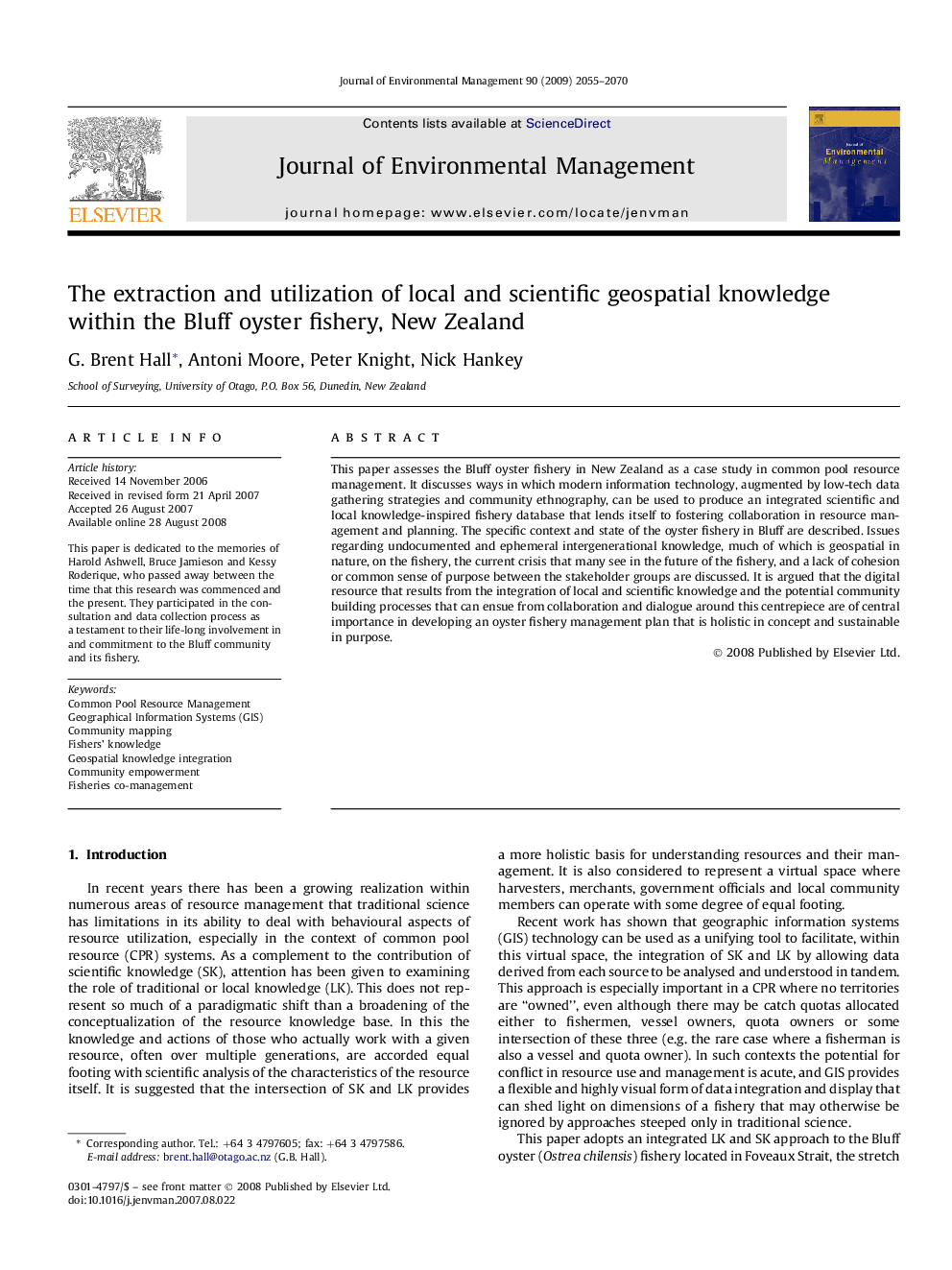| Article ID | Journal | Published Year | Pages | File Type |
|---|---|---|---|---|
| 1058247 | Journal of Environmental Management | 2009 | 16 Pages |
This paper assesses the Bluff oyster fishery in New Zealand as a case study in common pool resource management. It discusses ways in which modern information technology, augmented by low-tech data gathering strategies and community ethnography, can be used to produce an integrated scientific and local knowledge-inspired fishery database that lends itself to fostering collaboration in resource management and planning. The specific context and state of the oyster fishery in Bluff are described. Issues regarding undocumented and ephemeral intergenerational knowledge, much of which is geospatial in nature, on the fishery, the current crisis that many see in the future of the fishery, and a lack of cohesion or common sense of purpose between the stakeholder groups are discussed. It is argued that the digital resource that results from the integration of local and scientific knowledge and the potential community building processes that can ensue from collaboration and dialogue around this centrepiece are of central importance in developing an oyster fishery management plan that is holistic in concept and sustainable in purpose.
